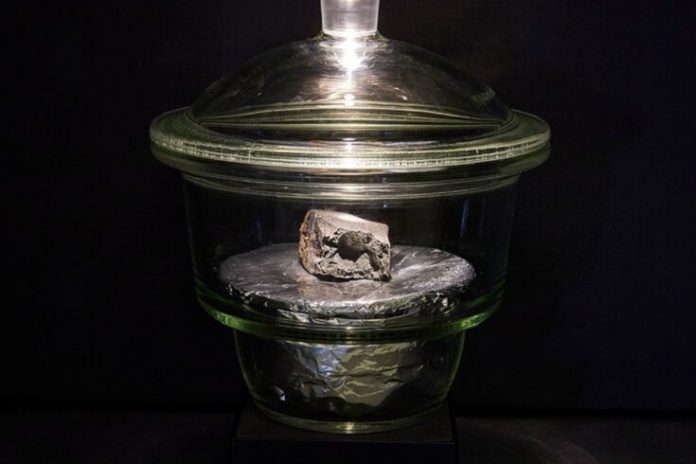Scientists are set to discover the origins of oceans and life on Earth from a rare meteorite that dates back 4.5 billion years ago
The Winchcombe meteorite, named after it landed in the Gloucestershire town, is an extremely rare type called a carbonaceous chondrite and is thought to date back to the beginning of the solar system, 4.5 billion years ago.
It is rich in water and organic matter which has retained its chemistry from the formation of the solar system and will be analysed to potentially unlock new information about life on Earth.
Science and Technology Facilities Council funding
Science and Technology Facilities Council (STFC) provided an urgency grant in order to help fund the work of planetary scientists across the UK.
The funding has:
- Enabled the Natural History Museum to invest in state-of-the-art curation facilities to preserve the meteorite
- Supported time-sensitive mineralogical and organic analyses in specialist laboratories at several leading UK institutions.
Dr Ashley King, a UK Research and Innovation Future Leaders Fellow in the Department of Earth Sciences at the Natural History Museum, said:
“We are grateful for the funding STFC has provided.
“Winchcombe is the first meteorite fall to be recovered in the UK for 30 years and the first ever carbonaceous chondrite to be recovered in our country.
“STFC’s funding is aiding us with this unique opportunity to discover the origins of water and life on Earth.
“Through the funding, we have been able to invest in state-of-the-art equipment that has contributed to our analysis and research into the Winchcombe meteorite.”
Dr Luke Daly from the University of Glasgow and co-lead of the UK Fireball Network, said:
“Being able to investigate Winchcombe is a dream come true.
“Many of us have spent our entire careers studying this type of rare meteorite.
“We are also involved in JAXA’s Hayabusa2 and NASA’s OSIRIS-REx missions, which aim to return pristine samples of carbonaceous asteroids to the Earth.
“For a carbonaceous chondrite meteorite to fall in the UK, and for it to be recovered so quickly and have a known orbit, is a really special event and a fantastic opportunity for the UK planetary science community.”
Dr Queenie Chan from Royal Holloway, University of London, added:
“The team’s preliminary analyses confirm that Winchcombe contains a wide range of organic material!
“Studying the meteorite only weeks after the fall, before any significant terrestrial contamination, means that we really are peering back in time at the ingredients present at the birth of the solar system, and learning about how they came together to make planets like the Earth.”











